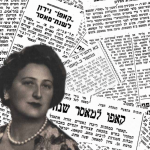בשנות השישים של המאה העשרים התעוררה זהות מוסלמית מיוחדת בקרב קהילת השחורים בארצות הברית. מה הביא אותם לאמץ דת חדשה אחרי שנים של אמונה נוצרית? על המרת דת כביטוי להתרסה חברתית
ב-25 בפברואר 1964 הדהים מתאגרף צעיר בשם קסיוס קליי את התקשורת האמריקנית כאשר גבר כנגד כל התחזיות על אלוף העולם במשקל כבד סוני ליסטון. הכתבים הרבים שהצטופפו סביב לזירה במיאמי היו המומים. מבחינתם זה לא אמור היה לקרות. ליסטון היה בריון אימתני שלמד להילחם בכלא ובשכונות העוני ונחשב לבלתי מנוצח. קליי, לעומתו, היה צעיר רברבן בן 22, ללא ניסיון משמעותי באגרוף מקצועני, שנהג להכריז בכל הזדמנות כי הוא 'הגדול מכולם בכל הזמנים' וכי הוא חייב להיות האלוף שכן אף אחד מלבדו אינו יפה מספיק.
הכתבים היו משוכנעים כי הקרב יהיה חד צדדי וכי הוא יסתיים מהר ובאופן אכזרי בבית החולים או בחדר המתים. להפתעתם הקרב אכן היה חד צדדי, אבל באופן הפוך משציפו. במשך שישה סיבובים רקד קליי בזירה אנה ואנה כשהוא מתחמק מכל המכות שליסטון שיגר לעברו, ובמקביל לא פוסק לרגע מלשלח בליסטון מהלומות פיזיות ומילוליות. בסוף הסיבוב השישי ליסטון כבר היה פצוע ומותש מכדי לעמוד על רגליו וקליי היה לאלוף החדש.

הבגידה
למחרת הרגישו הכתבים נבגדים עוד יותר, כאשר במסיבת העיתונאים אישר קליי את השמועות כי המיר את דתו והצטרף לארגון 'אומת האסלאם':
אני יודע לאן אני הולך, ואני יודע את האמת, ואני לא צריך להיות עוד מה שאתם רוצים שאני אהיה (דייוויד רמניק, 'מלך העולם – מוחמד עלי: עלייתו של גיבור אמריקאי', עמ' 271).
זמן קצר אחר כך הודיע האלוף החדש כי הוא לא מוכן עוד להיקרא בשם קסיוס קליי. קליי הוא שם של עבד, הכריז, זה היה שמו של האדון הלבן ששעבד את אחד מאבותיי. מכאן ואילך, אמר, הוא מוכן להיקרא אך ורק בשמו החדש, המוסלמי – מוחמד עלי.
כדי להבין את עוצמת הזעזוע צריך לזכור שעבור האמריקנים האגרוף היה הרבה יותר מספורט באותן שנים. הוא היה עולם שלם, תרבות, כמעט דת. מגזינים מיוחדים הוקדשו לתחום ומיתולוגיה עשירה התפתחה סביבו. בעיני הציבור הזירה הייתה התגלמות הגבריות, המקום שבו מתרחש המאבק האולטימטיבי. בעיני האינטלקטואלים היא הייתה משל פילוסופי על החיים ועל מאבקו של האדם. המתאגרפים, גם אלה מהדרג השני, היו דמויות מוכרות בכל בית. ילדים העריצו אותם, סופרים ידועים – ובהם ארנסט המינגווי ונורמן מיילר – כתבו עליהם בהתפעמות.

בעולם הזה היה שמור מקום של כבוד לאלופים במשקל כבד, ומאז שנות הארבעים של המאה העשרים רובם היו שחורים. בעיני השחורים הם היו סמל להצלחה, בעיני הלבנים הם היו דוגמה מוצלחת לאינטגרציה בין גזעית. כאשר פלויד פטרסון – תומך מובהק בתנועה לזכויות האזרח – זכה ב-1960 בתואר העולמי, הדבר נחשב ניצחון למצדדי האינטגרציה. פטרסון אפילו הוזמן לבית הלבן ונפגש עם הנשיא קנדי.
אפשר להבין אם כן את האכזבה שאחזה בכולם – כתבי ספורט ופעילי זכויות אזרח, שחורים ולבנים – כאשר התברר כי האלוף החדש הוא לא רק צעיר פטפטן וקל דעת המאוהב בעצמו, אלא שהוא גם מתעקש להזדהות עם ארגון קיצוני ועם דת מוזרה שאיש מבין הכתבים לא ידע עליה כמעט דבר. מהי אומת האסלאם הזו, הם תהו בינם לבין עצמם, מנין הגיעה וכיצד הצליחה ללכוד ברשתה את האלוף החדש?
המטיף המסתורי
כדי להשיב על כך עלינו ללכת מעט אחורה. ב-1930 הגיע לדטרויט אדם מסתורי בשם וולאס פארד והחל לעבוד כסוחר זעיר שעבר מדלת לדלת בעיקר בקרב האוכלוסייה השחורה. לא הרבה ידוע על וולאס פארד, וגם לא ברור אם זהו שמו האמיתי. הוא עצמו טען שנולד בעיר מכה. האפרו-אמריקנים שביניהם חי ראו בו אחד משלהם למרות עורו הבהיר, ואילו חוקרים מאוחרים סבורים כי היה ממוצא תורכי או פקיסטני. כך או כך, זמן קצר לאחר בואו לעיר החל פארד לערוך חוגי בית קטנים, ועד מהרה התקבצה סביבו קבוצה קטנה של חסידים. תחילה קרא באוזניהם קטעים מהתנ"ך, אך בשלב מסוים החליף את התנ"ך בקוראן, וזה הפך לספר הקדוש שלו ושל מאמיניו. כעבור שנים אחדות הפכה החבורה הקטנה שהתקבצה סביב פארד לקהילה דתית שמנתה אלפי חברים, כולם שחורים.
אין לך מנוי לסגולה?
זו ההזמנות להצטרף למנוי בעברית או באנגלית ולקבל גישה לכל הכתבות באתר, את הגליון המודפס הביתה בדואר ועוד שלל הטבות מפתיעות
כבר מנויים? התחברו







